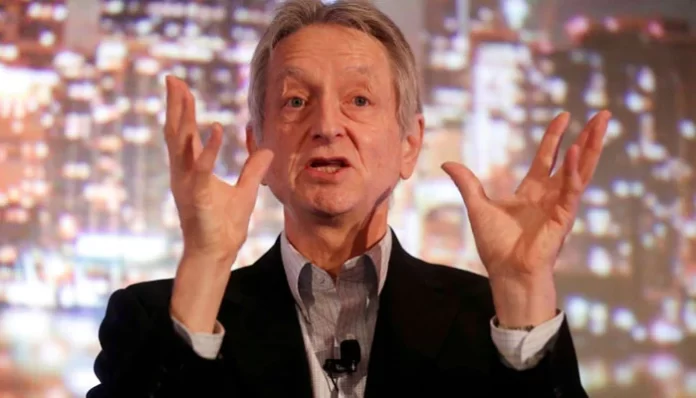
The Godfather of AI Geoffrey Hinton — who quit Google earlier this week to speak freely about artificial intelligence — said that the technology is posing more urgent dangers to humanity than climate change.
Hinton parted ways with Google after dedicating a decade to the tech giant.
He is considered a pioneer in AI neural network development which is currently being used in numerous technological products.
Back in 1986, he wrote a paper in collaboration about “Learning representations by back-propagating errors”, a milestone in the development of the neural networks undergirding AI technology.
He was given the Turing Award in 2018 in recognition of his research breakthroughs.
However, he is currently voicing his concerns about the potential dangers of AI and what would happen if machines took over humans.
Hinton noted during an interview with Reuters: “I wouldn’t like to devalue climate change. I wouldn’t like to say, ‘You shouldn’t worry about climate change.’ That’s a huge risk too. But I think this might end up being more urgent.”
“With climate change, it’s very easy to recommend what you should do: you just stop burning carbon. If you do that, eventually things will be okay. For this it’s not at all clear what you should do,” the AI pioneer added.
The AI arms race was started when Microsoft-backed OpenAI released its human-like chatbot ChatGPT which drew worldwide attention not only from the public but technology giants. Its users reached 100 million monthly users in two months.
In March, the CEO of SpaceX and Twitter, alongside other tech CEOs and leaders wrote an open letter urging a six-month pause citing profound risks to humanity as the ChatGPT 4 came into the market.
Though Hinton was not among the signatories, however, he shared the concerns that AI may prove to be an existential threat to mankind, and he disagreed with pausing research.
“It’s utterly unrealistic,” he said.
“I’m in the camp that thinks this is an existential risk, and it’s close enough that we ought to be working very hard right now, and putting a lot of resources into figuring out what we can do about it,” added Hinton.
Responding to the open letter, lawmakers from European Union urged US President Joe Biden to call a global summit on the future of AI with European Commission President Ursula von der Leyen.
Last week, the committee agreed on a landmark set of proposals targeting generative AI, which would force companies like OpenAI to disclose any copyrighted material used to train their models.
Biden, meanwhile held discussions with a number of AI company leaders, including Alphabet CEO Sundar Pichai and OpenAI CEO Sam Altman at the White House, promising a “frank and constructive discussion” on the need for companies to be more transparent about their systems.
“The tech leaders have the best understanding of it, and the politicians must be involved. It affects us all, so we all have to think about it,” remarked Hinton.



